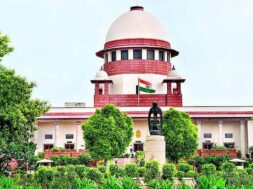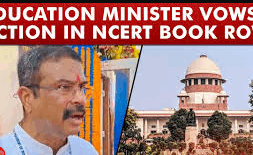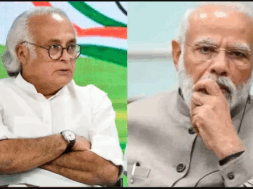
NEW DELHI, Nov 4: The Supreme Court on Friday upheld the Employees’ Pension (Amendment) Scheme, 2014 as “legal and valid” while reading down certain provisions of the scheme concerning current members.
The judgment by a three-judge Bench led by Chief Justice of India U.U. Lalit came in an appeal filed by the Employees Provident Fund Organisation challenging the orders of the Kerala, Rajasthan and Delhi High Courts quashing the 2014 amendments on “determination of pensionable salary” under the Employees’ Pension Scheme (EPS) of 1995.
The court held that the amendments to the pension scheme notified on August 22, 2014 would apply to the employees of “exempted establishments” in the list of the Employees Provident Fund Organisation (EPFO), which number over 1300 companies and entities, in the same manner as for the staff of regular establishments. However, using its extraordinary powers under Article 142 of the Constitution, the court removed the cut-off date of September 1, 2014.
The legal dispute primarily concerned the controversial amendments made to paragraph 11 of the EPS-1995. Before the amendments were introduced, every employee, who became a member of the Employees Provident Fund Scheme of 1952 as on November 16, 1995, could avail the EPS. In the pre-amended version of EPS-1995, the maximum pensionable salary cap was ₹6,500. However, members whose salaries exceeded this cap could opt, along with their employers, to contribute up to 8.33% of their actual salaries.
The 2014 amendments to the EPS, which included changes in paragraph 11(3) and by inserting a new paragraph 11(4), had raised the cap from ₹6,500 to ₹15,000. Paragraph 11(4) said only employees, who were existing EPS members as on September 1, 2014, could continue to contribute to the pension fund in accordance with their actual salaries. They were given a window of six months to opt for the new pension regime. Besides, 11(4) created an additional obligation for members whose salaries exceeded the ₹15,000 ceiling. They had to contribute at the rate of 1.16% of the salary.
Again, the pensionable salary was an average of 12 months’ pay before the date of the employee’s exit from the EPS. The amendments had extended the period of calculation of average pensionable salary from 12 months to 60 months. “We do not find any flaw in altering the basis for computation of pensionable salary,” the court held.
“Till recently, there was uncertainty about the amendment scheme which was quashed by the three High Courts. Thus, all employees who did not exercise the option (of joining the amended pension scheme) when they were entitled to do so, but could not do it due to the interpretation of the cut-off date should be given a further chance to exercise their option. Under these circumstances, the time to exercise the option shall stand extended by four months,” the court directed.
The judgment, authored by Justice Aniruddha Bose for the Bench, found the additional requirement on members to contribute 1.16% of their salary as ultra vires. “The requirement of the members to contribute at the rate of 1.16% of the salary to the extent that such salary exceeds ₹15000 per month as an additional contribution made under the amendment scheme is held to be ultra vires to the provisions of the Employees’ Provident Funds and Miscellaneous Provisions Act, 1952,” Justice Bose held.
(Manas Dasgupta)













